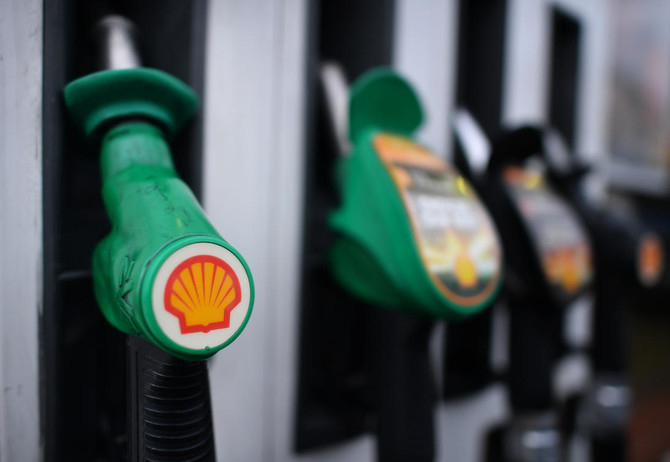LONDON: Royal Dutch Shell will expand deepwater output and turn a profit from its shale production in coming years as both together will help the oil major cope with a world of low crude prices, the head of its oil and gas production said on Tuesday.
Shell's deepwater production in Brazil, Nigeria, the Gulf of Mexico is much bigger and more profitable, but the firm sees the nimble, fast-returns U.S. onshore shale as an engine for growth.
"We can see strong (shale) production growth, strong cash surpluses that gives us a balance in our portfolio where you can ramp investment up and down, you can moderate that, very unlike deepwater which is quite chunky," Andy Brown told Reuters in an interview on the sidelines of the IP Week conference.
"They sit nicely together in a portfolio."
Now, mammoth deepwater projects and smaller shale fields both compete for Shell's tightly-controlled capital and could generate profits with oil as low as $40 a barrel, Brown said.
Benchmark Brent crude is now trading at about $65, up from below $30 at the start of 2016.
Following Shell's $54 billion acquisition of BG Group in 2016, the Anglo-Dutch company became a major player in deep water, which is set to produce 900,000 barrels of oil equivalent per day (boed) by the end of the decade, roughly a fifth of Shell's total output. Today, it produces about 750,000 boed.
Shell made its deepwater goals clear when it swept up nearly half the Gulf of Mexico oil and gas blocks awarded in a Mexican auction in January, months after picking up Brazilian blocks.
The offshore business was set to generate $6 billion to $7 billion a year in free cash flow in the next three years, roughly a quarter of Shell's total free cash flow, Brown said.
"The aim is to get it (the cash generation) and sustain it through the next decade," he said.
Shell aimed to approve several new deepwater developments this year, including Vito in the U.S. Gulf of Mexico and Bonga Southwest in Nigeria, he said, adding it would also work on plans to develop its Gulf of Mexico Whale discovery.
Brown has overseen a sharp reduction in development costs in recent years with the help of new technology and by simplifying designs to make projects profitable at lower oil prices.
But Shell, along with others such as Exxon Mobil and Chevron, has invested heavily in the shale businesses, lured by lower development costs and quicker start up.
Shell still did not generate a profit from its shale activities, much of it focused in the Permian basin in west Texas and New Mexico, but aimed to break even by 2019, a year earlier than originally planned, Brown said.
"We had an ambition to get cash flow positive in 2020, we accelerated that to 2019. There are circumstances we can be cash flow positive this year," Brown said.
Shell would increase its shale output to 200,000 barrels of oil equivalent per day (boed) by 2020, he added.
In the deepwater vs shale oil contest, Shell backs both
In the deepwater vs shale oil contest, Shell backs both














